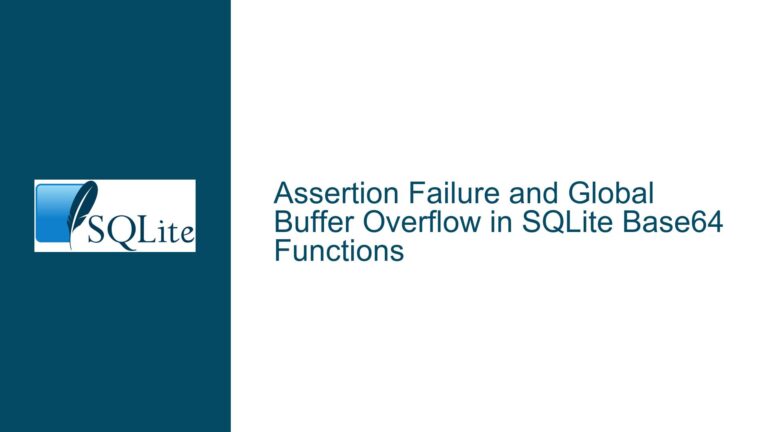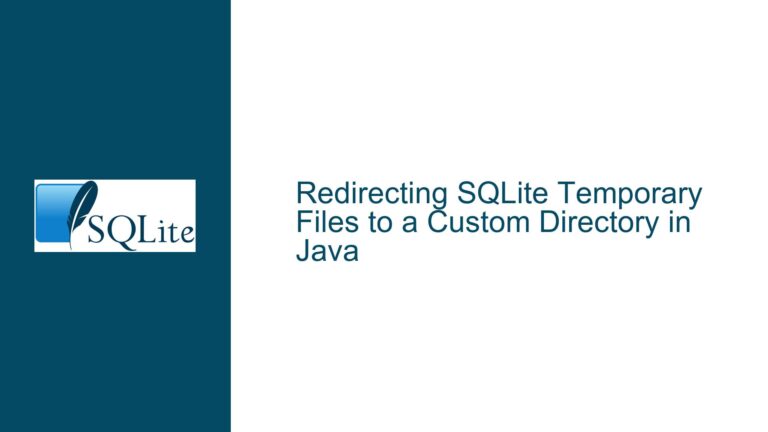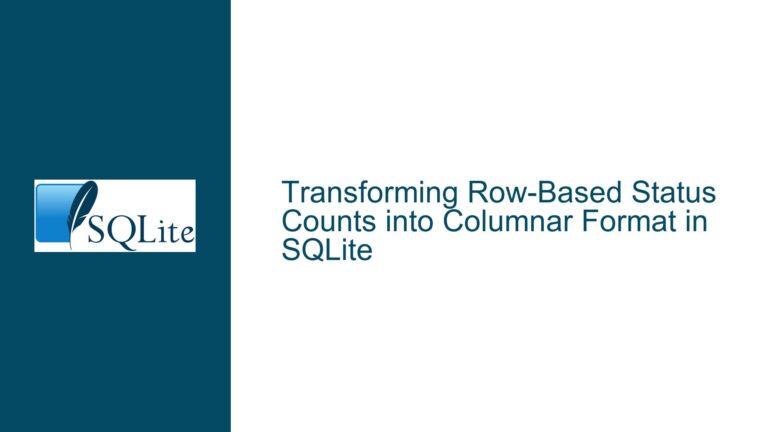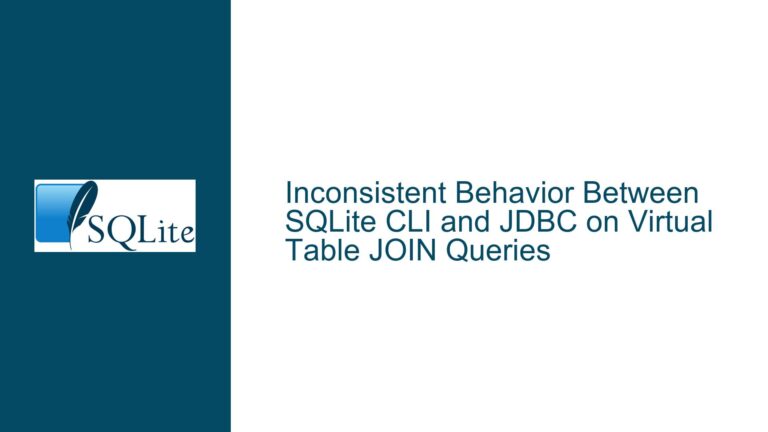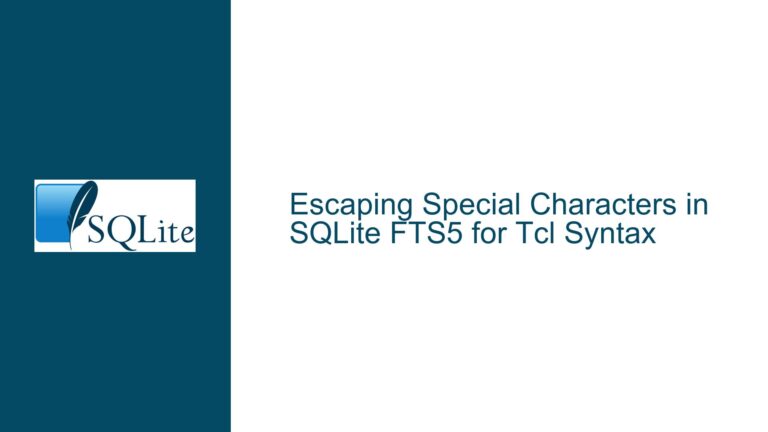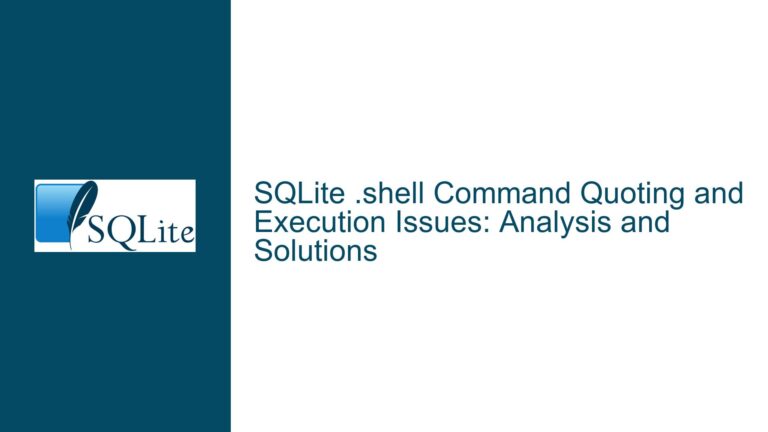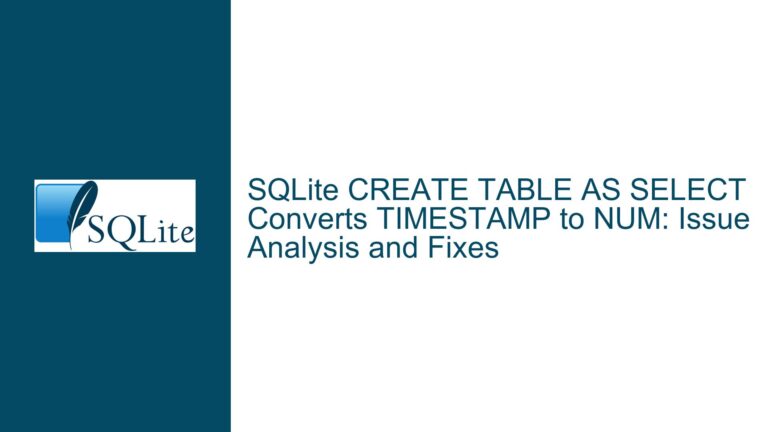Assertion Failure and Global Buffer Overflow in SQLite Base64 Functions
Issue Overview: Assertion Failure in sqlite3_result_blob and Global Buffer Overflow in fromBase64 The core issue revolves around two interrelated problems in SQLite when executing specific queries involving the base64 and regexp_bytecode functions. These problems manifest under distinct compilation environments and toolchains but share a common root in memory safety violations. Assertion Failure in sqlite3_result_blob The…
